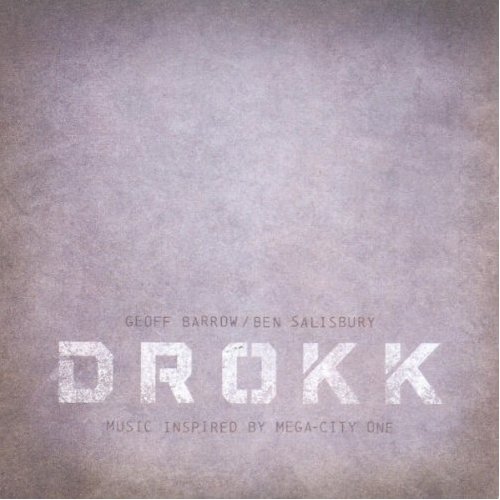Reviews
Judge, jury, and executioner

Drokk: Music Inspired by Mega City One
Geoff Barrow & Ben Salisbury
Release Date: May 01, 12
- 1
- 2
- 3
- 4
- 5
- 6
- 7
- 8
- 9
- 10
Geoff Barrow is best known for his work with Bristol trip-hop band, Portishead. Ben Salisbury is a well established composer for the BBC. Together they have created a concept album inspired by the dystopian world of Judge Dredd comics.
Drokk: swear word used by many inhabitants of Mega City One in Judge Dredd. i.e. Holy drokk! Drokk it! Oh, drokk! Perfect title for an album that is raw, sonically apocalyptic, and full of succinct ambitions. If this had been the soundtrack for the 1995 film Judge Dredd, it would have had to been made in 1985, as that 80s synthesizer sound consumes Drokk. It evokes imagery full of lasers and lights peeking through a city where it is always night, Delorean-like vehicles racing after each other in sky and on streets, and leather, metal-clad characters whom could either be heroes or villains.
The tone is dense, bleak, but full of energy, so it doesn’t drone along or become boring. And the song titles imply that the album is telling a story, as would a film score: “Lawmaster Pursuit,” “Titan Bound,” “Scope the Block,” etc. Barrow and Salisbury do a fine job of maintaining a rigid overall tone for each song, while also making them completely individual. As one track punctuates a rapid beat through needling effects, another will vibrate of low hums and hollow bass rhythms. There’s bound to be a background of nuances that can only be heard on headphones. Each song is unique in there emotion. The sense of conflict varies. Some erupt of tension, rushing forward without looking back. Others sneak through in a paranoid pattern of electronica.
Not only is Drokk an homage to the Judge Dredd comic itself, but to a great degree, also to the late 70s and early 80s dystopic, sci-fi vision itself. These 19 tracks form a landscape where robots could battle each other or where aliens could invade. Most of all, they express the mood of a humanity stricken by a dystopian future, making it relatable to its audience.